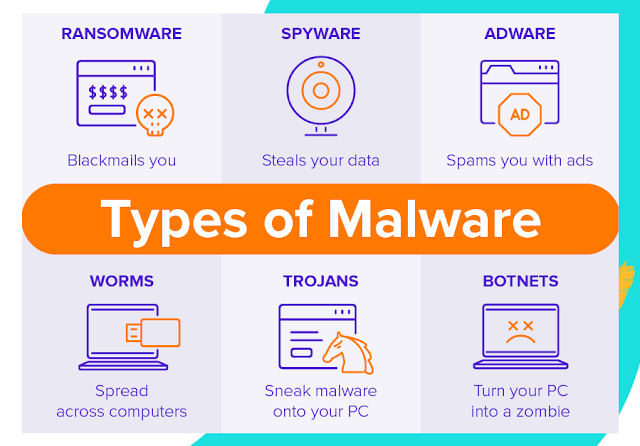What Is Antivirus Software Process To Detect Viruses?
Do you know how an antivirus program works? On one click it scans, it investigates your files, and you get a detailed report. And while that is good, it is important to understand how the process works. How does it work?
What is Antivirus Software?
Antivirus software helps you detect and manage infected files on your computer. Advanced versions of antivirus can help you uncover infections before they occur, from email scanning to scanning online files and more.
Some of the common types of infections that a file can have are:
● Malware
● Ransomware
● Spyware
● Trojans
● Worms
● Viruses
● Adware
Antivirus software separates infected files, which means they are sent to a dedicated place on your computer. There, these files can be cleaned and then placed back in their original locations or removed.
Do not worry if you have an infection. The more digitally connected we are, the more susceptible we are. Infected files can usually be eliminated, and you can continue your work online and offline like nothing ever happened…if you have an antivirus program.
What is a Virus?
A computer virus is a type of software that clones itself. To eliminate a computer virus, scan your system through antivirus software. Once the scan is finished, any infected files can be cleaned and deleted. In the worst case, you will need to back-up your data and perform a factory reset on your computer.
Common Signs Of An Infected Computer
If you really understand computer viruses, it helps to know what to look for. Here are a few common signs related to viruses:
● Slower speeds of computer
● Irregular error codes popping up
● Popups ads, warnings, and other unwanted material
● Browser pages redirecting to a website
● Password locked out important files or the system itself
● Delayed network speeds
The Basics of Your Antivirus
Antivirus programs are not perfect. With viruses perpetually evolving, development teams have to always be ready to fix the next virus. When an antivirus program scans your files, it compares them to known viruses or malware. There are three types of identification that are used:
● Specific Detection – looking for known viruses using a set of characteristics that are particular to a type of virus.
● Generic Detection – looking for viruses based on forms assigned to a typical virus family.
● Heuristic Detection – searching for odd file structures and behaviors. These types of viruses are usually unknown and recognized by the strange behavior they showcase.
Most antivirus programs come with various scanning options. A full-system scan will take more time to complete, but it will scan every single file on your system. This scan is best completed when you do not need your computer as it will need substantial system resources.
In contrast, limited system scans are great if you want to scan a specific section of your computer, but they are less thorough.
Wrong Positives
Any antivirus software is bound to make a few mistakes. Generally, these wrong positives are nothing more than an irritation, but in rare cases, they can actually damage system files. For instance, AVG once damaged vital system files in 64-bit Windows 7 and Microsoft Security Essentials by classifying Google Chrome as a virus.
The formula based detection method tends to cause the most wrong positives because it is a pro-active scanning method. It compares the characteristics of bitter programs to existing programs on your computer to look for a match.
If the virus scan report is confusing, check online to see if other users have had the same problem.
How Updates Work for Antivirus Programs
Antivirus programs depend on updates about the latest virus threats. Just like any software, your antivirus program needs to be updated on a regular basis.
Updates for antivirus programs are mostly called definitions. These definitions comprise new information discovered by an antivirus. Once the information is verified for accuracy, these definitions are updated across the platform.
The definition system lets antiviruses identify new viruses with reliable accuracy. Antivirus programs are trained by the millions of computers that run the software, allowing it to collect new information, upgrading its efficiency against known viruses, and more.
Do All Antivirus Softwares Detect All Viruses?
There are many different ilks of antivirus software, as there are many different ilks of computer viruses. Both are improving day by day. Depending on your antivirus software and the scans, you may find various infected files on your system than another computer.
Computer viruses are often styled to their victims. Hackers might target Windows over Mac, or Mac over Linux, or online users over offline users. You cannot say when or where you will get a virus. The best way is to have an updated antivirus installed on your computer.
Some software will only scan files on the computer, while others will scan the cloud. Your Antivirus software might exist in the cloud, this may not be ideal if you are an offline user, while cloud-based antivirus is best for a Chromebook user. Some Antivirus software works both ways: it is installed but receives constant updates from an online company server, which generally enhances the virus definitions that it looks for.
What is the Simplest Way to Protect Computer and Data?
To protect computers, never download unverified files. If you are downloading a file from the Internet or accessing a file from a flash drive, first ensure that you scan the file before opening it and accessing its contents. A virus can be there in any type of file, from a .exe file to a .docx file, to a .pdf file.
It is always simpler to stop a virus before it is lodged in your system. A quick scan can identify the virus and snuff it out before it becomes a serious issue. This does not mean that you should stop sharing and receiving information online or offline, just that you should realize the risks of doing so and validate you have the right virus program in place.
And for security measures, you should always back up your data. Either you use an external hard drive or the cloud, verify you can access a copy of your data should a file become infected.
Also, do your research about antivirus software. List your priorities regarding your computer usage. Search for antivirus software that works for you and your goals. Some like additional premium features, while others love basic, straightforward titles.
Having A Virus. Now What?
Do not worry. If your antivirus software found the issue, it has most likely separated the file. Separated files cannot damage your data or your system. Simply access the separated location where your file is placed, clean the file, and get rid of the infection. Your file should be good to use again.
Need Multiple Antivirus Programs On Computer?
There are unlimited antivirus software programs that you can have on your computer. However, for hard drive space and sanity, you should limit the number of antivirus software you use to no more than two. Typically, this means running Windows Defender with at least one other program. Scan once per week is more than enough.
When installing multiple antivirus programs, you may have clashing scans and definite programs can take over key system resources.
Will My Antivirus Work Forever?
The antivirus will work forever or not is a whole different thing. Free antivirus may not expire, but you will need a regular Internet connection to install amendments and updates. The same thing applies to cloud software. Like any virus, computer viruses advance over time and you will need an updated antivirus.
If you pay for your antivirus, you may be able to install a complete program, either for a restricted amount of time or for life. Remember, you will need to keep the program updated.
Malware, Antivirus, and the Cloud
Antivirus now can be found in the cloud in order to fight malware it detects there. Like most computing networks, the cloud was built with a focus on access, not security. As the cloud is incredibly freeing in terms of what we can do from anywhere, a virus could appear on our computers. You do not need to worry if you keep your antivirus up to date. Updates will offer your antivirus software the tools it needs to detect infected files and clean them properly.
Antivirus Tech Support Helpline Number
If you are still unable to understand the antivirus work process or face any problem again and again with your installed antivirus, then call us directly on Antivirus Tech Support Number, our experts will provide you with the proper guidance and will fix the issue for you instantly. At Antivirus Helpline Number we provide solutions for a wide range of issues pertaining to Antivirus. So, whatever the issue you face, call us anytime, our team is available 24*7 for antivirus support.
Source by https://www.247techigs.com/blogs/what-is-antivirus-software-process-to-detect-viruses




Comments
Post a Comment